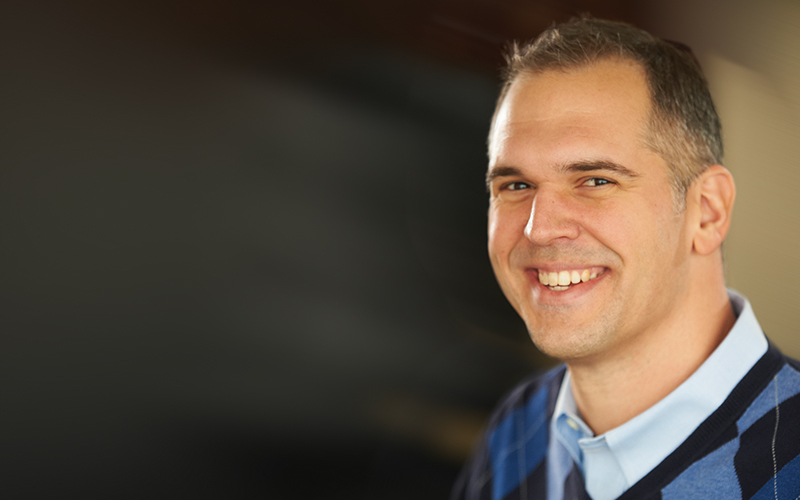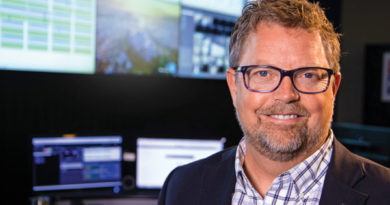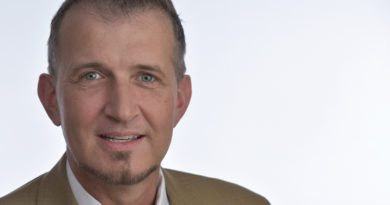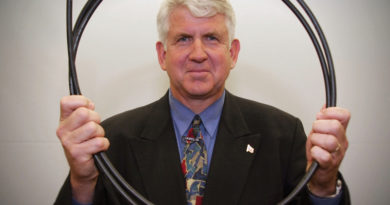Career of a Lifetime
Interview by Stewart Schley
For Altice’s Andy Parrott, cable’s the place to be. And always has been.
Among the 25 inductees to the Cable TV Pioneers class of 2018, one individual almost assuredly deserves bragging rights for lifelong commitment. Altice Technical Services Senior Vice President of Technical Operations Andy Parrott began his cable industry career straight out of high school, transforming what he thought was a summer job into what’s now a 25-year run (and counting).
Parrott’s love of all things cable started when he rode shotgun with a senior technician in his hometown of Holland, Michigan in the early 1990s, and it hasn’t stopped yet. During a recent weekend getaway with his family, Parrott talked with Broadband Library about what he’s learned, where he thinks the industry is going, and how a degree hanging on a customer’s wall in 1993 helped determine his career destiny.
How did it all begin?
I grew up in a Lake Michigan suburb — a small town called Holland. After I’d graduated high school, my father told me I wasn’t going to take the summer off before I headed to Indiana Wesleyan University. Somebody had said the cable shop up the road was looking for some help. I thought: How cool would that be? I applied, basically had some quick interviews, and I think I was working the next day.
This was C-TEC, a Charter Communications predecessor. What was your job?
Learning the ropes of the cable industry. I was riding shotgun, because that’s the way things were done back then. Within a week they gave me a truck and a toolbelt and off I went. I absolutely fell in love with what I was doing, and with the camaraderie of a small cable shop.
A few weeks later I was finishing an install at a house. I noticed the owner had just hung up his degree from Indiana Wesleyan. I asked him: ‘How’d you like school? I’m headed there in about a week.’ I was already enrolled, my dorm was set, I was all but locked in. But then this individual who had just graduated starting talking to me about my job. He asked what they paid, and I told him what my salary was. He looked at me and said: ‘Are they hiring?’ I told him ‘Yes.’ Because they were hiring to replace me.
Then I realized: This is what I want to do. I absolutely love this industry, I love where it’s going. And this was even before high-speed data. I was very passionate about it. I ended up staying and went to school locally, because I thought, for my career, I’d be four years ahead of everybody else. I was very young, in a group of people who were senior to me, and I just said, ‘this is it.’ So I stayed, accepted a promotion and accepted their offer to help with tuition, and went on my way.
And your “way” was what?
By my early twenties I was asked to run another system, about one hundred miles away. My boss at the time kept saying the commute was killing him. The next day, we bought a broken-down camper. The plumbing didn’t even work. But just to be close, to be local and to be on-site where the technicians are on call, I took the camper up the road from an office in Greenville, Michigan. I was a freshman leader at the time, and it was really important for me to be engaged, and to be local and part of the community. So that was my stepping stone.
Where did that stepping stone take you?
From there, I was asked to go to Texas, to run tech ops for the state, which was Charter at the time. In 1994, Charter had acquired C-TEC. I had converted my system to the best-performing system in the region. So I was asked if I’d be willing to go to Fort Worth, Texas. And I did.
What’s a key lesson you learned early on about being successful in this business?
I had some really good mentors. One of them was diligent about drilling this idea into me: Never ask anyone to do something you hadn’t done or weren’t willing to do yourself. Later, another mentor emphasized to me that to be an effective manager, you had to create an environment where you’re not needed.
Meaning what?
Meaning everybody on your team knows what to do, how to do it and when to do it. You’re there to support them, and if things fall apart, you’ll be there to put it back together, but meanwhile you’re all on the same page, you’re all driving towards a common goal. You’ve created an effective environment if, should you be unplugged, you’re not ultimately missed. So I think those are really the two key ideas. To provide empowerment to people, give people the ability to do what you have to do, and then set achievable expectations. You lead by example.
What are just a few ways in which the industry has changed since your early days?
When I started there was limited competition. I started before DirecTV and Dish Network were really out. As a technician, we offered a.m. or p.m. installation windows, for instance. The level of service and focus just wasn’t there. It’s a big contrast from today, when you can now track your technician, you can get estimated arrival times within two-hour or one-hour windows, you get reminder calls, you get a whole new level of customer service. It’s one massive difference. And competition drives that.
What about the product mix?
Back then if your service was out, you only lost video. Today, with the triple play — and in a lot of the markets we support, we even provide home automation and security — it’s lifeline service. And the customer’s expectations compared to twenty-five years ago are night and day. In my role as Senior Vice President of Operations for Altice Technical Services, we’re responsible for the execution of all fulfillment orders, the maintenance and plant extensions of the network, all of our newbuild. So the mantra of ‘always on’ needs to be tattooed across our arms.
Altice USA is big in the New York market, but also operates in lots of smaller, rural markets. From a tech ops perspective, what distinguishes each type of system?
We’ve got systems that have one or two techs; a small army base that was converted to a subdivision in Monterey, California, for instance, where we have people empowered to wear all the hats. Compared with New York there are vast differences in operations. I would say the number one distinction is that in larger metros, you’ve really got subject matter experts in their craft, where in the rural markets, you really have to have technicians who are blended across all the skill sets needed, from outside plant to construction to fulfillment to everyday service.
What’s your view of cable as a career pursuit?
This is the greatest industry to be in. We partner with the SCTE to really bring people in; to show them this isn’t just the summer job I thought it was when I started. This is ultimately a lifelong career. We create an environment that empowers our technicians to become the next to run operations, to create that path. The other thing is that in cable, you’ve got so many different avenues you can go down, from accounting to legal to procurement to programming. I can’t think of a lot of other businesses that have so many ways people can grow their careers without having to switch companies.
What makes a great candidate for a technician?
I look for attitude, and I try to find a way to get a history of work ethic. I can teach cable. I can’t teach attitude, and I can’t teach work ethic as well as I can the engineering side. So it’s about attitude: people who are hungry. And it’s about being able to give them the path of resources from our internal training programs to SCTE training programs, so they can self-fulfill the desires they have to grow. That’s the number one thing I look for: somebody who doesn’t just want to come in and punch a time clock, but really wants to become a major player in this industry.
Nobody gets to escape without being asked the question du jour: What do you make of the revolution in digital video today?
Altice USA embraces over-the-top services and our ability to embed services like Netflix into our own CPE. The company launched a new product called Altice One, which is an all-in-one integrated communications and connectivity gateway. I think it’s all about embracing the relationship we have with our customers and making sure we meet them where they are.
Beyond the paycheck, what’s satisfying or rewarding about what you do?
For one, the people. I’ve worked with people now for multiple decades. They’re like brothers and sisters to me. Also, I have a lot of pride in a lot of the things we do. If I go back to my hometown, and I drive down the street, I’ll point out the window to my kids and say, ‘See that cable across the street? Your dad installed that cable.’ Or we’ll eat at a restaurant, and I’ll say, ‘Your dad wired every TV in this Applebee’s.’ I’ll tell them: ‘This is what your dad did.’ I also look at people I’ve helped to mentor in their careers. In my corporate leadership position at Suddenlink we created the first MSO to have every technician SCTE-certified; thousands of people. We created a program to help them build their careers and become successful.
You’ll be inducted this October into the Cable TV Pioneers. What’s meaningful about that?
I would say the next chapter. I don’t want to associate ‘Pioneer’ with ‘old guy.’ I’m only halfway through. It’s the second half I’m really excited about, which is what we’re building with Altice USA and how we’re doing things completely different from any operator I’m familiar with — and I’m familiar with just about every top 10 MSO in the U.S. Altice’s mantra of fearless reinvention is embedded in our culture, to empower us to go do things people thought couldn’t be done. If you say it can’t be done, then I’m going to lead, and roll up my sleeves and jump in.
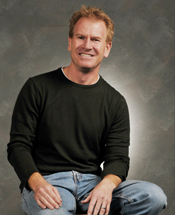
Stewart Schley,
Media/Telecom Industry Analyst
stewart@stewartschley.com
Stewart has been writing about business subjects for more than 20 years for publications including Multichannel News, CED Magazineand Kagan World Media. He was the founding editor of Cable Worldmagazine; the author of Fast Forward: Video on Demand and the Future of Television; and the co-author of Planet Broadbandwith Dr. Rouzbeh Yassini. Stewart is a contributing analyst for One Touch Intelligence.

